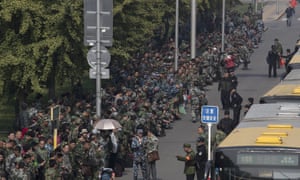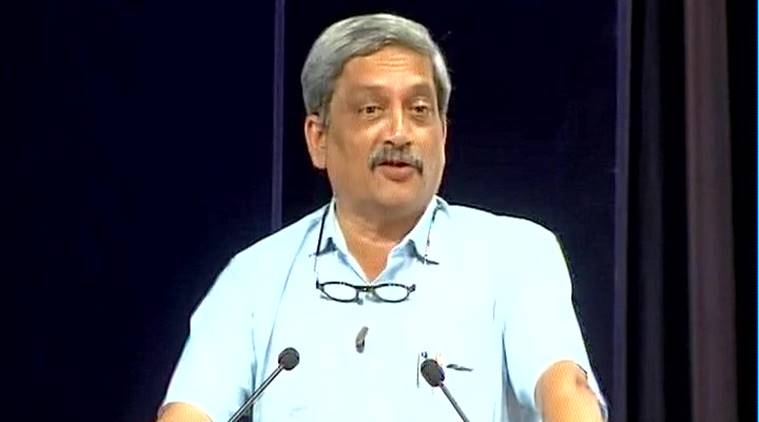
The protesters stood for several hours in front of the Bayi building in central Beijing, home of the Chinese ministry of national defence. Many wore green fatigues bearing the hammer-and-sickle logo of China’s ruling Communist party.
The purpose of their demonstration was unclear. Protesters approached by the Associated Press declined to be interviewed and censors blocked searches on social media about retired soldiers or the defence ministry.
Hundreds of police and plainclothes security officers surrounded the protesters, hemming them in with buses and police vehicles.
While Chinese authorities routinely suppress discussions about the military and soldiers’ issues, one human rights activist, Huang Qi, said veterans had staged more than 50 protests this year. However, demonstrations on such a large scale are rare in the centre of the heavily policed capital.
Two demonstrators said they were veterans who wanted the government to address military pensions, but they did not want to discuss the issue with foreign media. The protesters declined to give their names.
Liu Feiyue, the editor of the Minsheng Guancha website, which monitors civil rights issues, said he had been told by retired soldiers that other ex-soldiers were present.
“They protested because they don’t have a job now after serving a long period of time in the army, some for a dozen years,” Liu said. “They are asking for employment.”
China’s armed forces are undergoing a large-scale modernisation to become a nimble organisation that can better handle conflicts at sea and in the air.
Those measures have gained pace as China builds up its presence in the South China and East China Seas amid territorial disputes, and as relations have soured with Taiwan, which China claims as its own territory to be unified with by force if necessary.
Xi Jinping, China’s president, announced last year that the 2.3 million-member People’s Liberation Army would cut 300,000 personnel, but little has been said about the cost or where the surplus troops would go.
Veterans have staged sit-ins and protests for several years over low or absent pensions and an inability to find work outside the military.
It was not clear if anyone was arrested at the protest.
